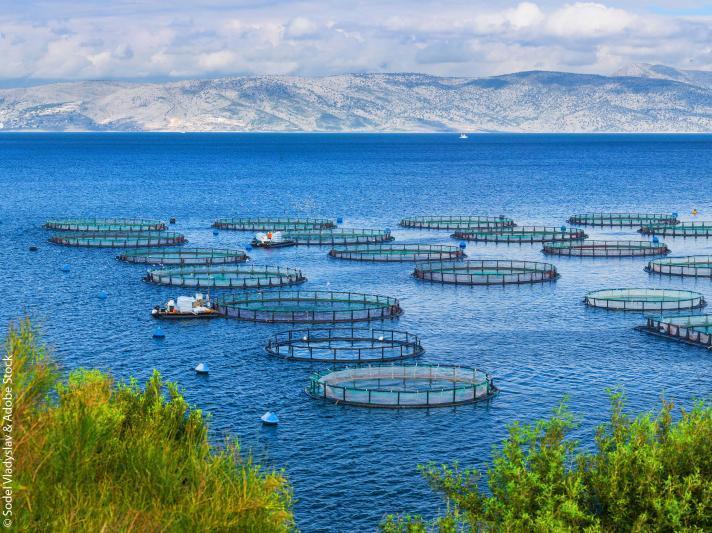On June 24 2024, the CMA Technical Group on Sustainable Aquaculture (SustAqua) convened online for its third meeting, focusing on the harmonisation of legislation and regulation across Black Sea countries. The meeting was opened by the Black Sea Assistance Mechanism's Coordinator (BSMA) and saw the participation of national experts from Georgia, Romania, Türkiye, and Ukraine, as well as observers from Bulgaria and Ukraine.
During the event, experts presented proposals on national legislation, discussed best practices for authorisation procedures and taxes, shared knowledge on Allocated Zones for Aquaculture (AZA) and Aquaculture Management Areas (AMAs), and explored recommendations for a unified governance framework for aquaculture in the region.
The Turkish representatives highlighted the evolution of their aquaculture permission systems through a structured process based on evaluations, tenders, or draws. Although this process is more accurate, it is also time-consuming. They emphasized challenges such as managing aquaculture space alongside other maritime activities and the use of scientific data in decision-making processes. Additionally, they noted the lack of updated and reliable documentation, stressing the importance of transparency and responsible investment principles in the region.
Georgia shared its progress in reforming its aquaculture infrastructure and legal framework since 2020. They highlighted the use of pilot projects to create a legal framework for aquaculture, and international cooperation for the allocation of coastal zones, and for shaping its aquaculture management areas, along with a transparent auction system for permissions. Recommendations included simplifying the permit issuance process, exchanging information to reduce obstacles, and creating guidelines for environmental impact assessments and monitoring.
Romania presented its challenges, such as restrictive legislation and short water concession periods, which hinder marine aquaculture development. They recommended extending concession periods and easing the licensing process to facilitate growth, integrating best practices for environmental impact assessments and monitoring across countries, and improving digitalisation procedures.
Bulgaria’s representative noted the country's lack of a cohesive national blue economy strategy, which affects the development of its aquaculture sector. A suggestion was made to create a consolidated vision for the blue economy, and it was proposed that a national authority be established to oversee and implement this strategy, ensuring a more coordinated and efficient approach to advancing aquaculture in Bulgaria.
Overall, the group aimed to ensure that sustainable aquaculture practices are supported by coherent and effective regulations across all Black Sea countries. The BSMA emphasized the need for continuous collaboration and data sharing among countries to streamline processes and support sustainable aquaculture. This meeting marks a significant step towards the development of a harmonised approach, promoting sustainability and growth in the region’s aquaculture industry.

